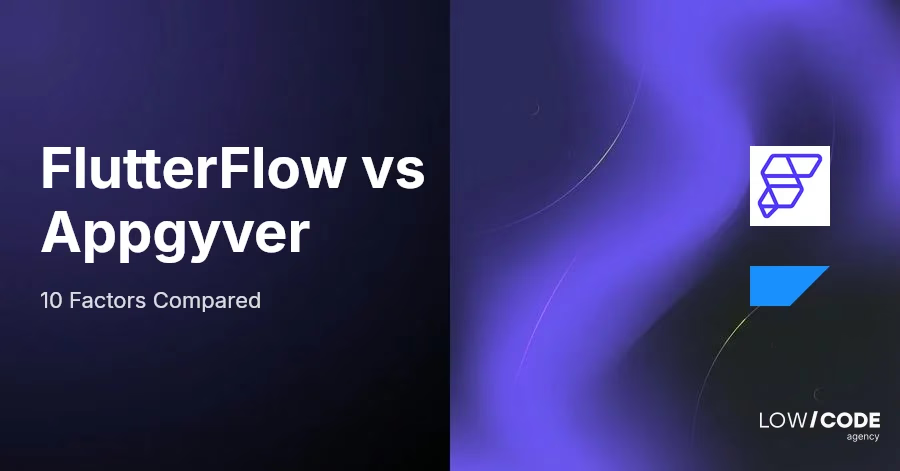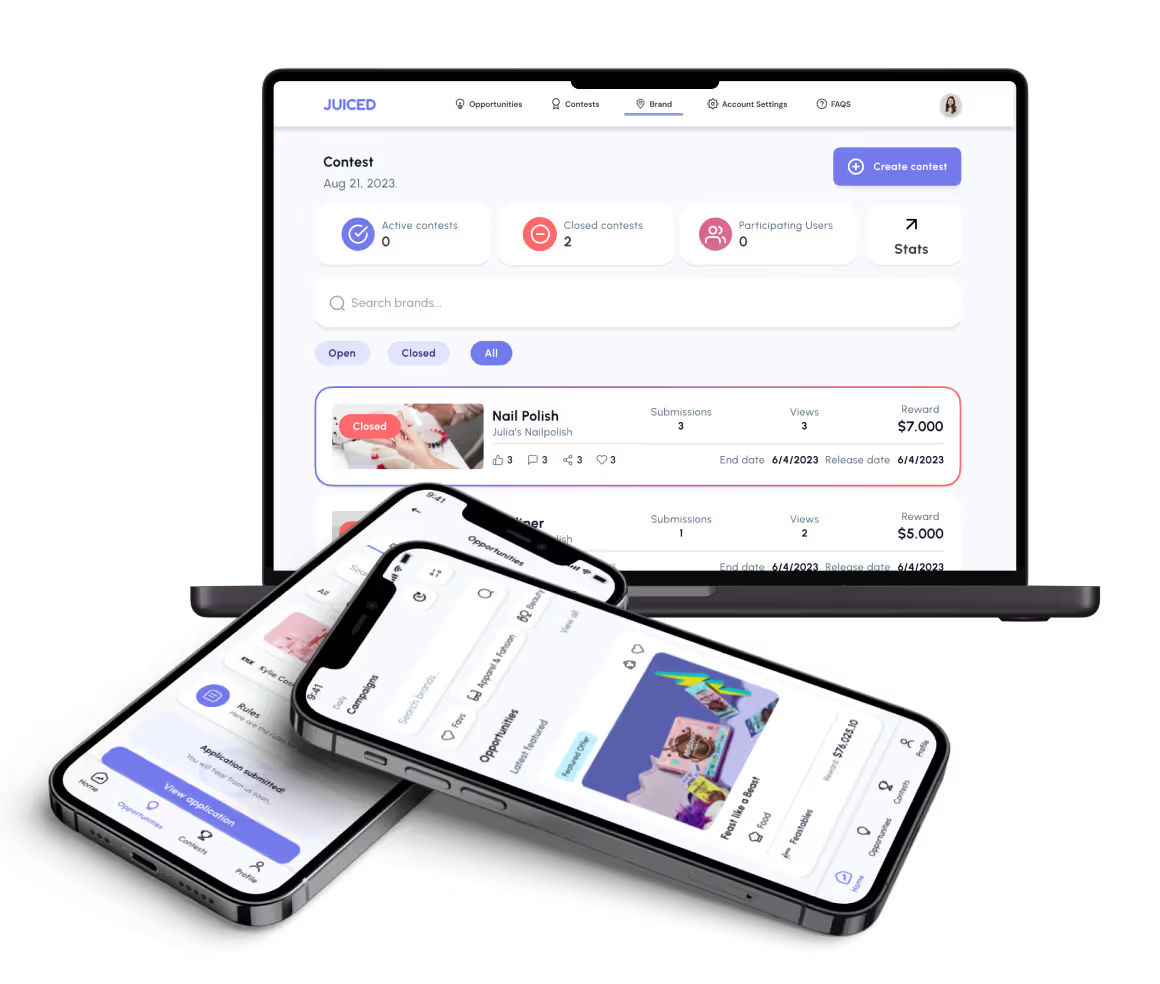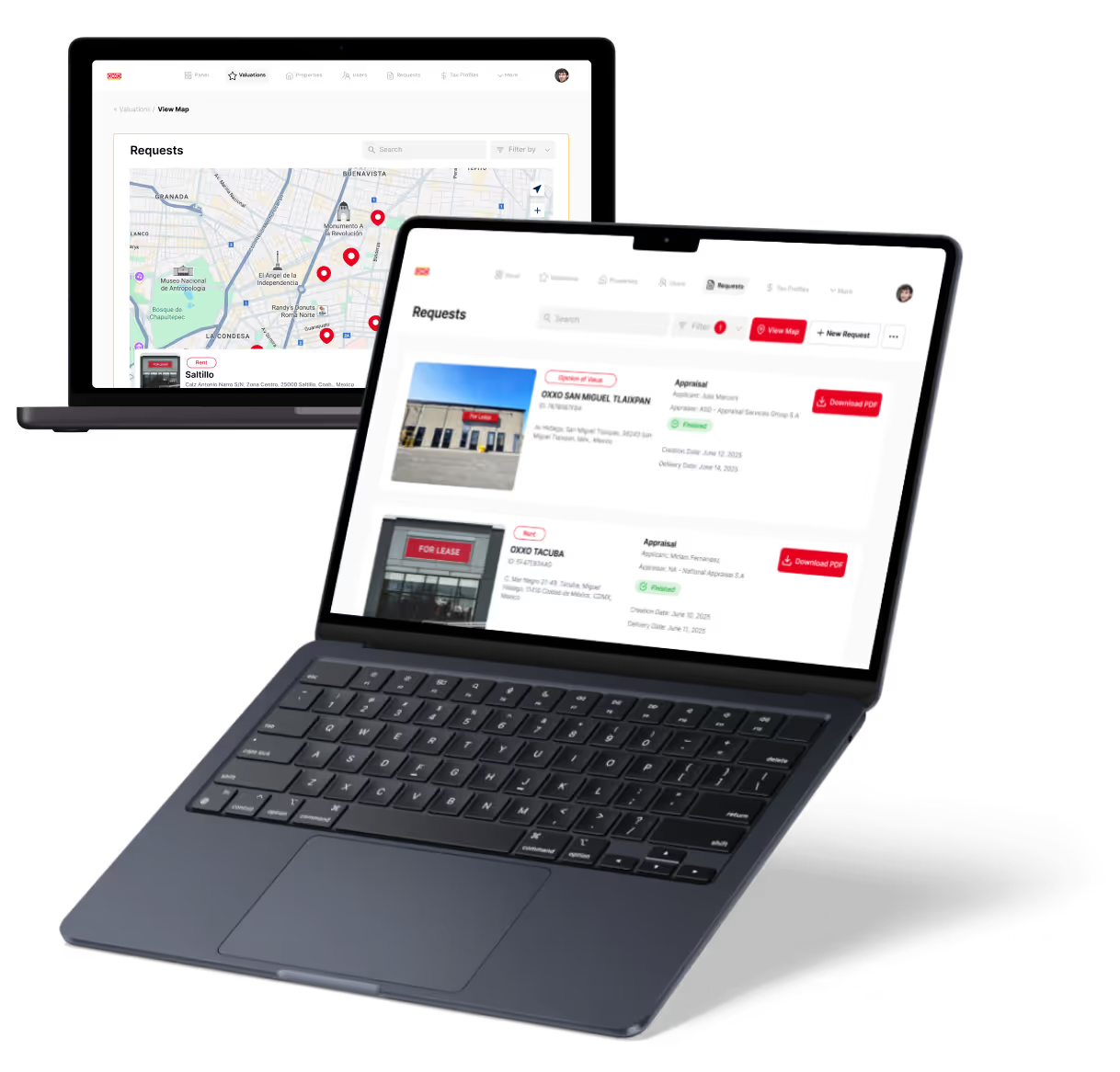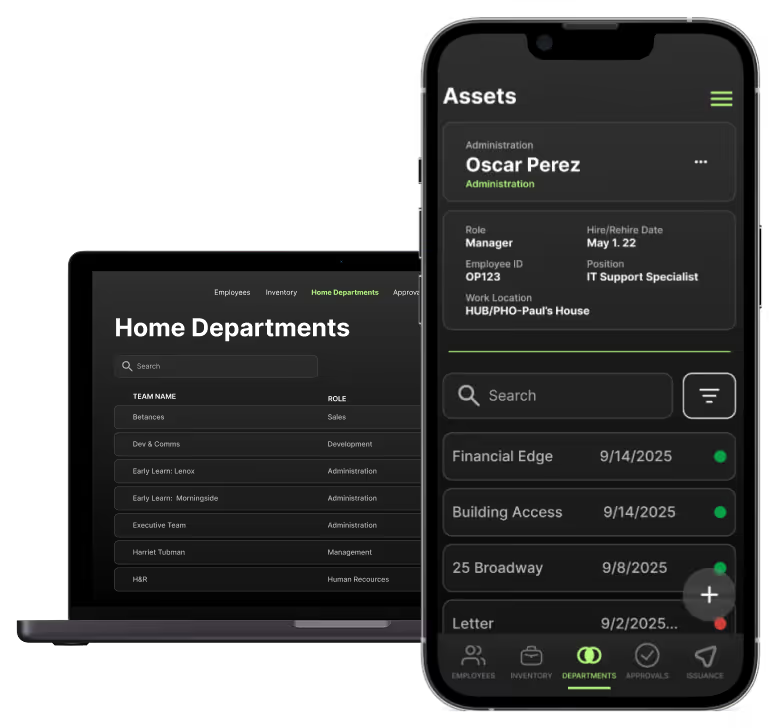FlutterFlow vs Appgyver | 10 Factors Compared (2026)
8 min
read
FlutterFlow vs Appgyver compared across 10 key factors including scalability, customization, pricing, and backend flexibility. See which platform fits your 2026 app strategy.

Quick Comparison Table - FlutterFlow vs AppGyver
1. Platform Status and Strategic Direction
This is the first and most critical consideration in FlutterFlow vs AppGyver because one platform remains independently active while the other has been absorbed into an enterprise ecosystem.
Is FlutterFlow Actively Developed and Growing?
FlutterFlow operates as an independent platform with consistent feature updates, growing user community, and clear product roadmap. The platform receives regular improvements across UI capabilities, backend integrations, and developer tools.
The company maintains strategic independence, making product decisions based on user needs rather than corporate enterprise priorities. For teams building long-term products, this active development signals reliable platform evolution.
Investment in FlutterFlow appears sustainable, with venture backing and growing adoption across startup and SMB markets. You can see real production-ready mobile builds in our curated list of FlutterFlow app examples.
What Happened to AppGyver After SAP Acquisition?
AppGyver was acquired by SAP in 2021 and has since been transitioning into SAP Build Apps, part of SAP's larger enterprise platform ecosystem. The original AppGyver platform has seen minimal updates and reduced community support since acquisition.
AppGyver Community Edition remains available but is explicitly positioned as a "stepping stone" to SAP Build Apps rather than a standalone product with independent future. SAP has made clear that enterprise features and active development focus on the paid SAP Build Apps product.
For organizations not using SAP systems, this strategic shift creates significant uncertainty about long-term platform viability and support. The platform's future is tied entirely to SAP's enterprise strategy rather than general-purpose no-code development.
2. Who Is Each Platform Actually Built For?
This is where the fundamental audience difference between FlutterFlow vs AppGyver becomes non-negotiable for decision-making.
Who Should Choose FlutterFlow?
FlutterFlow targets startups, product teams, and SMBs building consumer apps, SaaS products, or cross-platform applications. The platform assumes users want mobile-first development without enterprise IT infrastructure requirements.
Pricing, features, and platform philosophy align with lean product teams moving fast and iterating based on user feedback. No corporate ecosystem lock-in means teams can build products independently.
For founders launching MVPs, agencies building client apps, or product teams creating consumer-facing mobile apps, FlutterFlow provides the right balance of capability and independence.
Who Should Choose AppGyver (SAP Build Apps)?
SAP Build Apps is increasingly designed for SAP customers building internal business applications that integrate with existing SAP systems like SAP S/4HANA, SAP SuccessFactors, and SAP Ariba.
The platform assumes users operate within SAP Business Technology Platform (BTP) environments and want seamless integration with SAP enterprise systems. This makes it suitable for large organizations already invested in SAP infrastructure.
For teams without SAP systems or those building consumer apps independent of enterprise infrastructure, AppGyver's strategic direction creates significant friction and uncertainty.
3. SAP Ecosystem Integration and Dependency
This determines whether SAP's enterprise focus helps or hinders your product goals.
How FlutterFlow Remains Platform-Agnostic
FlutterFlow maintains independence from any single enterprise ecosystem. It integrates with Firebase, Supabase, custom APIs, and various backend services based on project needs.
This platform-agnostic approach means teams can choose best-in-class backend services without vendor dependency. Google integration exists through Firebase but remains optional rather than architectural.
For teams wanting flexibility and avoiding enterprise ecosystem lock-in, FlutterFlow's independence provides strategic freedom. If backend selection feels confusing, here's our breakdown of the best backends for FlutterFlow.
How AppGyver Became SAP-Centric
SAP Build Apps now focuses primarily on SAP ecosystem integration as its core value proposition. The platform's enterprise features emphasize connectivity with SAP business systems.
While external database connections remain possible, the strategic positioning and pricing structure assume SAP BTP environment usage. For non-SAP customers, this creates architectural complexity and cost structures designed for different use cases.
Organizations without SAP infrastructure face unnecessary platform complexity and uncertain cost-benefit justification for choosing SAP Build Apps over general-purpose no-code platforms.
4. Pricing Models and Cost Structures
This is not just about entry price but understanding how corporate acquisition changed cost models dramatically.
How FlutterFlow Pricing Works for Startups
FlutterFlow uses straightforward subscription pricing ranging from free to approximately $30-$70 per month for individual developers, with higher tiers around $150+ per month unlocking code export and team features.
Costs scale based on builder seats rather than complex capacity calculations. Backend infrastructure through Firebase or Supabase introduces separate usage-based costs but remains predictable.
For startup budgets and small teams, FlutterFlow's pricing remains accessible. Platform costs stay manageable as products grow, with backend scaling separately based on actual usage.
For a full feature-by-feature breakdown, review our guide to FlutterFlow pricing plans.
How SAP Build Apps Pricing Became Enterprise-Focused
SAP Build Apps uses capacity unit pricing tied to SAP Business Technology Platform, with estimated costs ranging from €1,000 to €1,300+ annually (approximately $1,100-$1,400+ USD) for basic enterprise access.
The Community Edition remains free but lacks enterprise features and provides limited support. Upgrading to enterprise features requires significant cost increases that reflect SAP's enterprise customer focus.
For startups or small teams accustomed to AppGyver's original free model, this pricing shift creates substantial barriers. The cost structure assumes corporate IT budgets rather than startup economics.
5. Code Ownership and Platform Lock-In
This reveals how corporate acquisition affects long-term product control and migration flexibility.
Code Export and Ownership in FlutterFlow
FlutterFlow offers full Flutter source code export on higher-tier plans, allowing teams to transition from visual development to traditional Flutter development using standard tools.
Exported code is complete, deployable, and independent of FlutterFlow's platform. This reduces vendor lock-in and provides long-term flexibility as products scale or requirements change.
Teams maintain architectural control and can continue development outside FlutterFlow's ecosystem when necessary. We've explained practical implications in our transparent review of what you can and can't do with FlutterFlow.
Limited Export in AppGyver (SAP Build Apps)
SAP Build Apps provides limited export capabilities compared to platforms focused on code ownership. The system is designed to keep applications running within SAP BTP infrastructure.
Migration away from SAP Build Apps becomes architecturally complex because the platform assumes SAP ecosystem dependency. For teams without SAP infrastructure, this creates significant strategic lock-in.
Organizations choosing SAP Build Apps should plan for long-term SAP commitment rather than expecting easy platform migration if needs change.
6. Development Activity and Platform Updates
This affects whether your chosen platform will keep improving or stagnate as priorities shift.
FlutterFlow's Consistent Development Cadence
FlutterFlow maintains regular feature releases, documentation updates, and community engagement. The platform roadmap responds to user feedback and market needs actively.
New backend integrations, UI capabilities, and developer tools appear consistently. For teams building long-term products, this development velocity signals reliable platform evolution.
Independent ownership means product decisions prioritize user needs rather than corporate strategic shifts unrelated to the platform's core mission.
AppGyver's Reduced Development Since Acquisition
Since SAP's acquisition, AppGyver has seen minimal feature updates focused on the community edition. Development resources shifted toward SAP Build Apps enterprise features.
Community feedback indicates frustration with reduced innovation and support for the original AppGyver platform. The "stepping stone" positioning makes clear that active development focuses elsewhere.
For teams wanting continuous platform improvement and innovation, this reduced development activity creates uncertainty about long-term capability growth.
7. Mobile App Distribution and Deployment
Both platforms support mobile app building, but strategic focus and deployment ease differ significantly.
How FlutterFlow Handles Mobile Deployment
FlutterFlow builds true native iOS and Android applications through Flutter compilation, enabling straightforward App Store and Google Play submission.
The platform includes deployment tools, certificate management, and publishing workflows designed for consumer app distribution. Mobile-first architecture assumes apps will be publicly distributed through official app stores.
For consumer apps, SaaS products, and marketplace applications, FlutterFlow provides complete mobile deployment infrastructure without enterprise complexity.
How SAP Build Apps Approaches Mobile Deployment
SAP Build Apps supports mobile app creation but with enterprise internal distribution as primary focus. The platform includes preview apps for iOS and Android but deployment workflows emphasize internal business apps.
Consumer app store publishing remains possible but is not the platform's strategic focus. Enterprise mobile app management (MAM/MDM) integration aligns with corporate IT requirements.
For internal business tools within SAP environments, this enterprise focus works well. For consumer mobile products, the architectural assumptions create unnecessary friction.
8. Backend Architecture and Data Integration
This shapes how you structure data and connect to business systems.
How FlutterFlow Integrates Backend Services
FlutterFlow connects to Firebase, Supabase, or custom REST APIs through visual backend builders. Database queries, authentication, and cloud functions configure through FlutterFlow's interface.
This integration supports unified development where frontend and backend logic exist in one environment. For teams building complete applications, this reduces context switching.
Backend choices remain flexible, allowing best-in-class service selection based on project requirements rather than platform mandates.
How SAP Build Apps Connects to Data
SAP Build Apps emphasizes integration with SAP business systems as its primary data connection model. The platform includes connectors for SAP S/4HANA, SuccessFactors, and other SAP solutions.
External database connections remain possible but the platform architecture and pricing assume SAP BTP environment usage. This SAP-centric approach benefits existing SAP customers but creates complexity for others.
For organizations without SAP infrastructure, connecting to standard databases and APIs feels unnecessarily complex compared to general-purpose platforms.
9. Learning Curve and Developer Resources
Platform maturity, documentation, and community support significantly affect development speed.
FlutterFlow's Growing Community and Resources
FlutterFlow maintains active documentation, video tutorials, community forums, and third-party educational content. The platform's growing adoption creates expanding knowledge resources.
Community-created templates, component libraries, and integration guides help accelerate learning. For developers transitioning from other no-code platforms, FlutterFlow's patterns feel familiar.
Independent platform status means documentation and support prioritize general use cases rather than enterprise-specific scenarios.
We've also outlined strategic limitations in our transparent breakdown of FlutterFlow pros and cons.
AppGyver's Fragmented Resources Post-Acquisition
AppGyver documentation has become fragmented between legacy AppGyver resources and SAP Build Apps enterprise documentation. Community support decreased following SAP's acquisition.
Tutorials and guides increasingly assume SAP BTP knowledge and enterprise context. For developers outside SAP ecosystems, finding relevant documentation becomes challenging.
The "stepping stone" positioning means learning resources focus more on migration to SAP Build Apps than improving within the community edition.
10. Which Platform Fits Different Scenarios?
This section provides practical clarity by mapping FlutterFlow vs AppGyver to real-world product needs and strategic contexts.
Best for Startup MVP
FlutterFlow is clearly superior for startup MVPs requiring mobile apps with independent futures. Platform pricing, development velocity, and strategic independence align with startup needs.
AppGyver's transition to SAP Build Apps makes it unsuitable for startups without SAP infrastructure. Cost increases and enterprise focus create barriers for lean product development.
If your aim is to build a real SaaS product, check out our detailed guide on how to build a SaaS with FlutterFlow.
Best for Consumer Mobile Apps
FlutterFlow excels for consumer-facing mobile applications requiring App Store and Google Play distribution. Native compilation, design flexibility, and independent positioning support consumer app development.
SAP Build Apps focuses primarily on internal business tools rather than consumer marketplace applications. Strategic direction and pricing don't align with consumer app economics.
Best for SAP Customer Organizations
SAP Build Apps is purpose-built for existing SAP customers building internal applications that integrate with SAP business systems. Native SAP connectivity provides value for organizations already invested in SAP infrastructure.
FlutterFlow can integrate with SAP through custom APIs but doesn't provide the same native SAP ecosystem advantages. For deep SAP integration requirements, SAP Build Apps makes architectural sense.
Best for Platform-Independent Development
FlutterFlow provides significantly better platform independence through code export, flexible backend choices, and no corporate ecosystem dependency.
AppGyver's transition into SAP Build Apps creates increasing SAP ecosystem lock-in. Teams wanting platform-agnostic development should avoid platforms being absorbed into enterprise-specific ecosystems.
Best for Long-Term Product Growth
FlutterFlow's independent status, active development, and code export capabilities support long-term product evolution without platform migration concerns.
AppGyver's uncertain future as it transitions to SAP Build Apps creates strategic risk for multi-year product roadmaps. The platform's direction is determined by SAP's enterprise priorities rather than general no-code market needs.
If you're planning a production-grade mobile app and need architectural clarity from day one, here's how to hire FlutterFlow developers.
Best for Teams Avoiding Corporate Ecosystem Lock-In
FlutterFlow maintains strategic independence from corporate ecosystems, allowing teams to build without enterprise infrastructure dependencies.
SAP Build Apps increasingly requires SAP BTP commitment, making it unsuitable for teams wanting to avoid enterprise vendor lock-in. The acquisition fundamentally changed the platform's independence.
Final Decision Guide – When to Choose Each
This final comparison addresses not just current features but strategic viability and long-term platform health.
Choose FlutterFlow If…
Choose FlutterFlow if you need native mobile apps with independent strategic direction and active ongoing development. It is the right platform when startup-friendly pricing, platform independence, and code ownership matter strategically.
Select FlutterFlow when building consumer apps, SaaS products, or applications where corporate ecosystem lock-in would create business risk. The platform fits teams wanting reliable long-term development without enterprise infrastructure dependencies.
It works best when you need a platform committed to general-purpose mobile development rather than enterprise-specific integration priorities.
Choose AppGyver (SAP Build Apps) If…
Choose SAP Build Apps only if you're an existing SAP customer building internal business applications requiring deep SAP system integration. The platform makes sense when you already operate within SAP BTP environments.
Select SAP Build Apps when enterprise SAP connectivity provides clear architectural value and cost justification exists within corporate IT budgets. The platform fits organizations where SAP ecosystem dependency is already strategic reality.
It works best for enterprise IT departments modernizing internal processes within established SAP infrastructure rather than startups or teams building independent products.
Strategic Warning About AppGyver
The AppGyver Community Edition exists primarily as a migration path to paid SAP Build Apps rather than a sustainable standalone platform. Teams should expect minimal future development and increasing pressure to upgrade into SAP's enterprise ecosystem.
For new projects in 2026, AppGyver Community Edition represents significant strategic risk compared to actively developed platforms with independent futures.
Want Help Building with FlutterFlow or Choosing Viable Platforms?
Choosing between FlutterFlow and AppGyver isn't just about current features, it's about understanding platform viability, strategic direction, and long-term sustainability. Corporate acquisitions change platform trajectories fundamentally.
LowCode Agency is a strategic product team that builds scalable applications using platforms with reliable futures and sustainable development models.
- We evaluate platform viability beyond marketing claims
Active development, strategic independence, and long-term roadmap clarity matter more than feature lists. We help teams avoid platforms undergoing uncertain strategic transitions. - We design for platform independence when possible
Code export capabilities, flexible backend choices, and minimal ecosystem lock-in protect long-term product flexibility. We structure applications to reduce platform migration costs if needs change. - We validate strategic fit before committing resources
Enterprise-focused platforms serve different needs than startup tools. We ensure platform selection aligns with team size, budget reality, and growth trajectory. - We build applications designed to outlive platform limitations
Proper architecture, clean backend separation, and export-ready code ensure applications can evolve beyond initial platform constraints. - We operate as a full product team
Product strategy, UX design, no-code engineering, backend architecture, and QA move together in structured sprints rather than disconnected phases.
We've built 350+ custom apps, SaaS platforms, and internal systems across industries. If you want to build with FlutterFlow or need guidance avoiding platforms with uncertain futures, let's discuss your roadmap and structure it properly from the start with LowCode Agency.
Created on
November 19, 2023
. Last updated on
February 20, 2026
.

FAQs
Which tool offers better scalability and integrations for mobile app development: FlutterFlow or AppGyver?
Is it worth switching from AppGyver to FlutterFlow for a small business app?
What are the main differences in UI design capabilities between FlutterFlow and AppGyver?
How does FlutterFlow’s AI integration work?
How can you overcome AppGyver’s learning curve and lack of updates?
What should small businesses consider about pricing and long-term cost?
















.avif)
